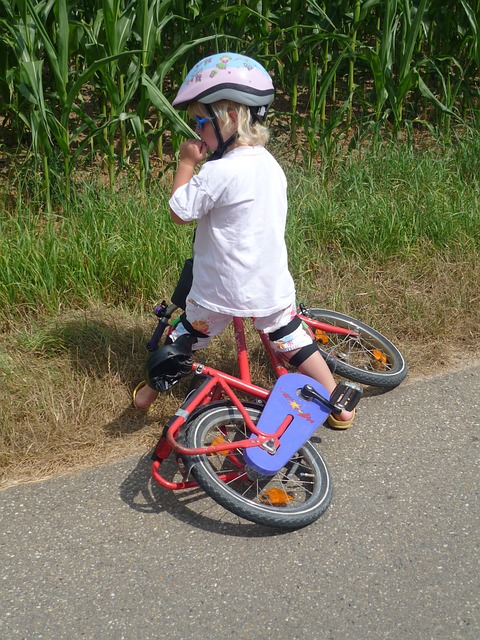Developmental Coordination Disorder: Not Just regular Clumsiness
Being clumsy could be one of the most common human nature. Getting hit in the toe, tripping over, knocking over objects from a table are some of the things we all do. However, there is a fine line between being clumsy in general and having a disorder called Developmental Coordination Disorder or DCD in short.
As a human, we learn from our experience. For example, if we burn our hand once, our brains will try to estimate the safest distance from naked fire afterward.
It has a strong tie to the learning curve. However, a person with DCD doesn't function in the same way. In most cases, they don't learn from past mistakes or experiences.
So, if you see your child making the same mistake over and over again, there is a big chance that he or she is a victim of DCD.
We will try to get you familiarized with DCD in this blog, tell you the common symptoms, suggest you some ways to deal with it.
What is Developmental Coordination Disorder or DCD?
Letâ™s clear something first. Developmental Coordination Disorder is not something like the other learning disabilities like dyslexia, dysgraphia, or dyscalculia. Technically it is more the like a neurodevelopmental disorder. If you want to compare it, you can consider ADHD.
Developmental Coordination Disorder or DCD is a lifelong neurodevelopmental condition where the patient struggles to maintain physical coordination and lacks proper motor planning skills.
As we have said, kids cannot outgrow this condition. However, with better treatment and physical therapies, patients can certainly improve the situation.

However, you shouldn't think that a child with DCD cannot move their body parts; they can. The problem is mostly linked to improper coordination of the movement.
Among the motor skill related issues, a DCD patient might face four kinds of problems â“
- Fine motor skills â“ movements of the smaller part of the body like the movement of the thumb.
- Overall motor skills â“ movements of the larger muscles like the movement of arms or legs.
- Motor planning â“ remembering which muscle to move while walking
- Lack of coordination between the muscles
So, how do these issues impact the life of the patient?
We can see significant impacts of DCD in the regular life of the affected person. Some of the problems might be as follows â“
- Trouble keeping balance
- Cannot change the movements as a normal human being in a new situation
- Instant movement of the body part
- Has a hard time learning new body movement
- Cannot assess the outcome of a particular movement
- Having a hard time coming up with a solution to the movement related problems
What are Common Developmental Coordination Disorder Symptoms?
It is quite clear that regular clumsiness and DCD are two completely different stories. As a parent how can you determine whether your child is casually clumsy or has DCD?

There are some specific symptoms a child with DCD might show age-wise.
Check them out â“
A Preschooler
- Cannot hold plates, glass or other utensils properly
- Shows awkward movement while playing
- Bumps into objects constantly and getting hurt too often
- Cannot maintain a straight posture
A Kindergartener
- Holds a pencil, pen, or crayon in an odd way
- Messy handwriting, cannot keep the sentences aligned
- Has a hard time using the stairs or might trip too often
- Cannot button up a shirt or brash properly
A Middle-schooler
- Takes much longer to write something
- Cannot cut foods simply
- A messy eater
- Cannot draw basic geometrical shapes properly
- Problems with writing persist
- The constant bumps and trips continue
Although the experts aren't sure of the true nature of the condition, they believe it could be genetical, premature birth, maternal alcohol or drug abuse. According to some recent studies, experts even guess that the condition is more common among male children.
Can Therapy Help?
The simplest answer would be â“ YES!
In fact, the best and primary Developmental Coordination Disorder treatment is occupational therapy. You cannot expect a DCD patient to cure like magic, but it can certainly improve the situations.
You should consult with the therapist about how should schedule the sessions. As the disorder is a lifelong condition, you should stick to the therapies as long as possible or act as the therapist suggests.
With proper therapy, your child can lead a normal life too. There are several examples of people with Developmental Coordination Disorder leading a quite normal life.
For example, pioneer scientist Einstein film star Daniel Radcliffe, business magnet Sir Richard Branson had DCD.
So, there is no way that Developmental Coordination Disorder can ruin the future of a person. You or your child should never feel shallow because of having DCD. With proper treatment, you can lead a very common life.

You can even enroll your child Individualized Education Program (IEP) as they have free occupational therapy sessions and have a much friendlier environment that helps a patient mentally.Â
What Should be Your Role as a Parent?
You can be your child's biggest support and strength in these hard conditions. The first thing you should do is to diagnose him or her as soon as possible.
You should never let them feel inferior or less than any other human being. Such an attitude might create a negative impact.
If possible, try to enroll your child in the IEP program. They have a great environment where your child can be stress-free.
We have some great guides on homeschooling and personalized learning. If you are a parent or teacher of such a poor child, you should go through these guides.Â
Yes, you could choose the regular school for your child too. There is nothing wrong with it. However, your child could feel bullied in the regular ones, and that would damage his or her morale even more badly.
Always indulge yourself and your kids in such activities where his or her self esteem can get a positive boost.
A spark of confidence and self-esteem make all the differences while dealing with Developmental Coordination Disorder.
Now you can take part in online Spelling Bee too! Check out the SBO section on Spellquiz today! Also, try this vocabulary tester to understand your current skill level! Try these spelling tests to master English spelling! Also, don't forget to check the complete list of spelling words. Â
share now:
Spelling Tests per Grade


